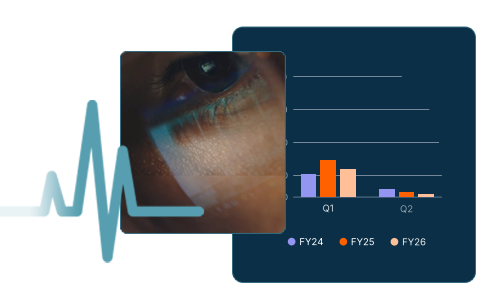Patient Assessment Services - Apex MPS

Are you spending too much time trying to understand your patients’ mental health? Our Patient Assessment Services (P.A.S.) help you get to know your patients better in just minutes. These quick, insurance-billable assessments boost your practice revenue while providing valuable mental health insights that might otherwise go unnoticed.
Mental Health Through Patient Assessment Services
Mental health screening doesn’t have to be complicated or time-consuming. Our patient assessment services make it simple to spot potential issues like depression, PTSD, or suicide ideation while patients are already in your office.
The beauty of our system? It runs alongside your regular appointments. While you check physical health, our tools quietly evaluate mental wellbeing. This comprehensive approach ensures nothing falls through the cracks with your patients.
Quick and Comprehensive Clinical Assessment Tools
Our patient assessment services use groundbreaking, visually-based surveys that patients actually complete. No more half-finished questionnaires or confusing results! The P.A.S. program includes:
- Initial 3-minute screening (20 questions) based on validated psychological instruments
- Follow-up detailed assessment (90+ questions) for cases needing deeper evaluation
- Instant reports delivered in formats familiar to medical professional
- Practice-branded website access for seamless integration
- Truth-revealing technology that helps patients express concerns they might not verbalize
Quick and Comprehensive Clinical Assessment Tools
The process couldn’t be simpler. Patients spend just 2-3 minutes on our initial survey while waiting for their appointment. If concerns arise, the second assessment takes only 20-25 minutes and digs deeper into their mental state.
You receive clear, instant reports that fit right into your existing workflow. No complicated new systems to learn or extra staff training needed. The patient assessment services seamlessly integrate with your current processes, making implementation a breeze.
Increase Your Practice Revenue with Outsourcing To Apex MPS
Here’s the financial win: these assessments are billable through approved CPT codes with over 97% payment rates. Many practices don’t realize they’re missing this revenue stream.
By partnering with Apex for patient assessment services, you’re not just improving care – you’re boosting your bottom line. Our billing expertise ensures you get paid properly for these valuable services, with minimal effort on your part.
Contact us Today For The Right Care Experts
Ready to transform how you understand patient mental health while increasing revenue? Apex MPS is here to help your practice thrive with our patient assessment services.
Give us a call, send an email, or fill out our contact form. We’ll answer all your questions about implementing these tools in your practice. Remember, better patient care and improved revenue are just a conversation away.
At Apex Medical Practice Solutions, we carefully balance our client base to ensure each practice receives our complete attention. Let us help you say goodbye to paperwork headaches while you focus on what matters most – your patients.
Why work with us?
We begin each relationship with understanding our customer’s needs. Open communication and transparency are at every stage of the partnership.

FAQ
How do clinicians use the P.A.S. diagnostic results to identify symptoms?
Our Patient Assessment Services provide clinicians with easy-to-interpret reports highlighting key mental health symptoms. When a patient completes our quick 3-minute screening, the clinician receives instant diagnostic information organized by severity and category. This allows you to quickly identify critical issues like depression or suicide ideation without lengthy interviews.
Can the P.A.S. program be used for inpatient settings or during admission procedures?
Absolutely! While many practices use our Patient Assessment Services in outpatient settings, they’re equally valuable during inpatient admission processes. The streamlined 2-3 minute initial assessment fits perfectly into standard admission protocols, giving your team immediate mental health insights when patients first arrive.
How do the assessment results guide intervention recommendations?
Great question! The P.A.S. reports don’t just identify issues – they help guide appropriate interventions based on the severity and nature of symptoms detected. Each assessment generates targeted intervention suggestions aligned with current best practices. For example, if a patient scores high on our depression scale, the report might recommend specific follow-up questions, medication considerations, or therapy approaches.

